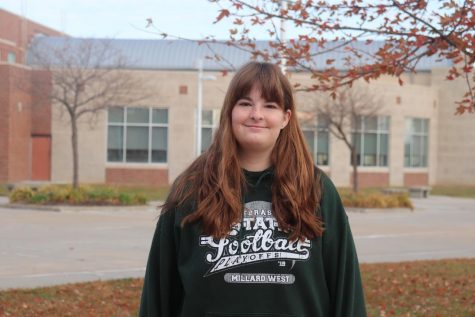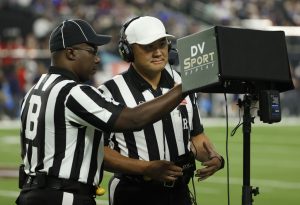Tacky Trademarks
An overview of silly sports trademarks
Teams have been trademarking words, phrases, and visuals for years, and some of them are leaving sports fans confused.
September 25, 2019
On Wednesday, Sept. 11th, The US Patent and Trademark Office (USPTO) rejected Ohio State University in its bid to trademark the word “THE” in front of its name.
Last month, the University asked the USPTO to make the three-letter word an exclusive Buckeyes right for use on T-shirts, baseball caps and other apparel. The application was discovered by trademark lawyer Josh Gerben.
“This application has issues out of the gate,” Gerben said in a video posted to Twitter. “In order for a trademark to be registered for a brand of clothing, the trademark must be used in a trademark fashion. In other words, it has to be used on tagging or labeling for the products. In this case, just putting the word ‘the’ on the front of a hat or on the front of a shirt is not sufficient trademark use.”
A spokesman for Ohio State University said they received a non-final office action from the USPTO. The school is reviewing its options and has six months to respond. The trademark office said OSU can overcome the refusal through a variety of measures. One of them being submitting various examples of how the term is being used.
Looking at OSU’s plans for the trademark, It doesn’t make much sense. Adding the word “The” to shirts and hats doesn’t require the school to trademark it and it’s pretty obvious that the USPTO would reject something as silly as this. I think this was more of a publicity stunt, rather than an actual attempt to earn the rights to the word.
However, OSU isn’t the only university to attempt to trademark something as absurd as the most common word in the English language. When it dropped the “men” from “Orangemen” in 2006, Syracuse University tried to trademark “Orange” for use on all apparel. Oklahoma State and other orange-wearing colleges like Auburn, Tennessee and Boise State filed a formal opposition. While Syracuse’s application for a piece of the color spectrum was rejected, they did get the rights to “Orangemen” in the end.
Colleges and universities aren’t the only ones who have faced trademarking troubles. In 2008, the New England Patriots took the crown for trademarks gone wrong when they tried to trademark the phrase “19-0” before they had even finished the season. The Pats did finish the regular season with a perfect 16-0 record and went on to improve that record to 18-0 during the playoffs. However, with 35 seconds left in the fourth quarter of Superbowl XLII, the Patriots failed to protect their four-point lead and Plaxico Burress of the New York Giants scored the winning touchdown on a 13-yard reception. The New York Post hilariously responded by filing an application for “18-1.”
If someone, especially a popular NFL team, is trying to trademark something they should at least wait till the trademark makes sense. In this case, applying for the rights to “19-0” before the season is over, was a stupid decision. I could understand wanting to trademark the phrase after winning the Superbowl, but the Patriots fell short of that and ended up with an imperfect season and an embarrassing trademark bid.
Johnny Manziel, who previously played two seasons for the Cleveland Browns, and his company JMan2 have filed for a total of ten trademarks with the USPTO. His most well-known trademark is of course “Johnny Football,” which he won the rights to after a debate with an investment firm. In September of 2014, Manziel filed an application for “Johnny Cleveland.” Given the fact that he wasn’t even the starting quarterback when he filed, this seems particularly odd. Later that year, Manziel made his shockingly awful NFL debut against the Bengals. Two years later, the quarterback was released. Manziel’s bid hasn’t been accepted or rejected, but it’s safe to say that “Johnny Cleveland” apparel won’t be flying off the shelves anytime soon.
The problem with each of these examples is the fact that they weren’t thought through. Attempting to trademark words such as “THE” and “Orange” isn’t very practical, and jumping to conclusions like the Patriots did, can result in a hilarious turn of events.
However, sports trademarks, when thoughtfully planned out, can have major benefits for the organization, athlete, or coach who filed them. A good example of this is former Los Angeles Lakers Coach Pat Riley’s “Three-Peat” and “3-peat.”
In 1988, the Lakers had won two NBA Championships in a row and were going for a third. Riley registered the trademark for both phrases. His team was swept by the Detroit Pistons in the 1989 finals, but Riley’s “three-peat” trademark bid wasn’t wasted. Five years later, the Chicago Bulls accomplished a three-peat and Riley pocketed an estimated $300,000 on royalties when the NBA used the phrase on championship merchandise. He also cashed in on the 1998 Bulls three-peat, as well as the 2000 Yankees and 2002 Lakers.
Riley may have jumped the gun on this phrase like the patriots did, but it made sense to trademark. Since he won the rights to “Three-Peat” four major professional sports teams have won three championships in a row. The only NFL team to play a complete perfect season (Both regular season and playoffs) is the 1972 Miami Dolphins, and it hasn’t been repeated. So even if the USPTO had approved the trademark, The Patriots wouldn’t be cashing in on anything major.
If a team, athlete, or coach is going to trademark a word or phrase, I think they should review the possible outcomes, benefits and disadvantages to their application and decide whether the pros outweigh the cons. Most of the examples I mentioned above don’t have many benefits, and I can’t see why they were necessary in the first place.








